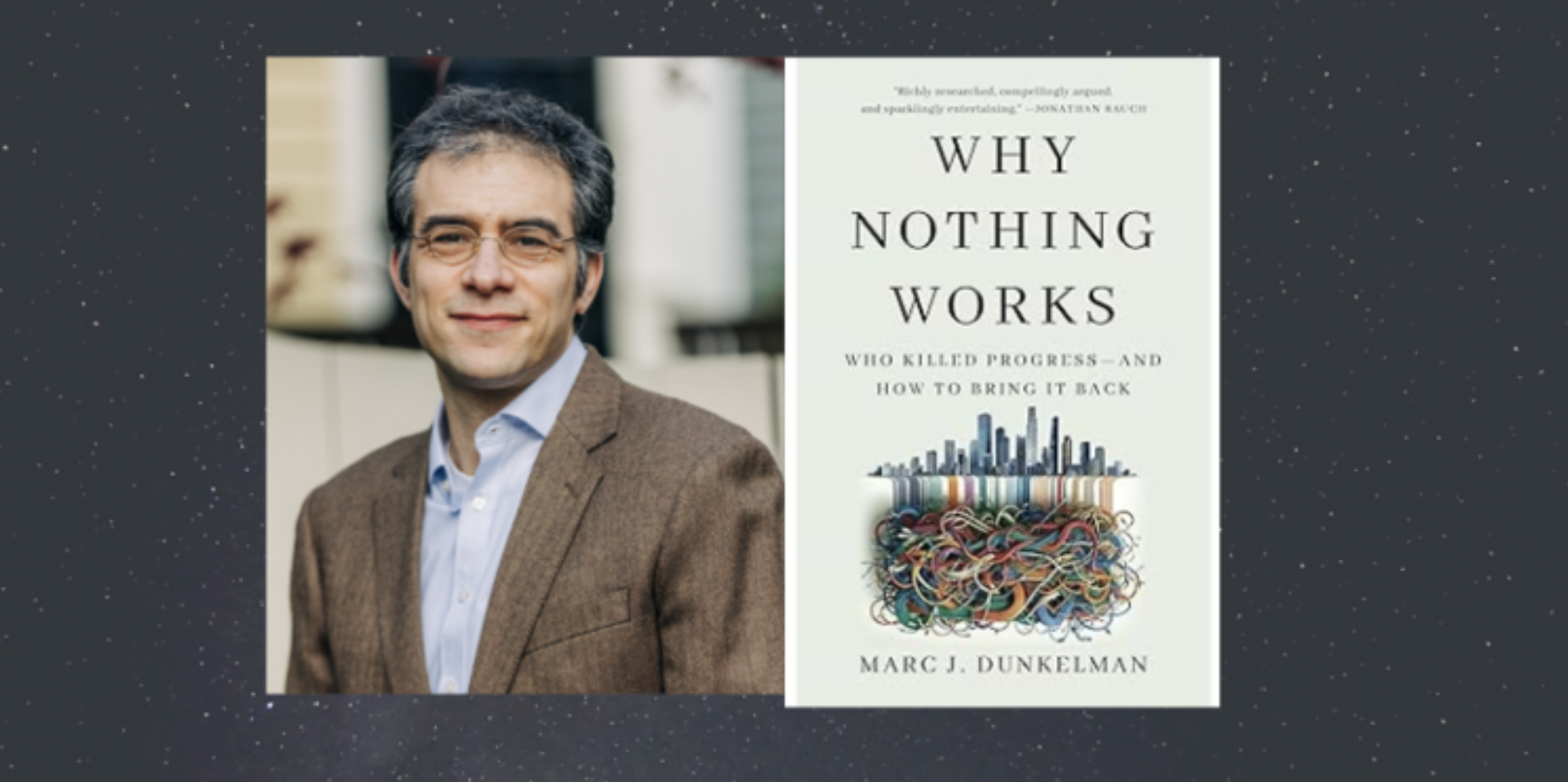

Book Talk: Why Nothing Works: Who Killed Progress―and How to Bring It Back

Join us for a timely conversation with author Marc J. Dunkelman, moderated by Evan Soltas, Assistant Professor of Economics at Princeton University.
The United States used to be able to deliver big things, from the world’s greatest rail network to a vast electrical grid, interstate highway system, abundant housing, and more. Lately, progress seems to have stalled on many fronts. In his new book, Why Nothing Works: Who Killed Progress—and How to Bring It Back, Marc J. Dunkelman argues that in order to accomplish big things, progressives need to unburden government. America’s inability to tackle major challenges—like housing, climate change, and infrastructure—stems from bureaucracy and gridlock. Dunkelman traces how progressives’ distrust of government and an eroded faith in institutions has fueled populism, and he makes the case that supply-side progressives must reclaim their original, action-oriented roots to restore confidence in democratic government and overcome the current paralysis that impedes investment and action.
Marc J. Dunkelman is a fellow at Brown University’s Watson School for International and Public Affairs and a former fellow at NYU’s Marron Institute of Urban Management. During more than a decade working in politics, he worked for Democratic members of both the Senate and the House of Representatives and as a senior fellow at the Clinton Foundation. He previously worked for Democratic members of both the Senate and the House of Representatives and as a senior fellow at the Clinton Foundation. He is the author of The Vanishing Neighbor and Why Nothing Works: Who Killed Progress—and How to Bring It Back. Dunkelman’s work has appeared in The New York Times, Washington Post, Wall Street Journal, Atlantic, and Politico. He lives in Providence, Rhode Island.
Evan Soltas ’16 is a public finance economist whose research primarily focuses on housing and urban policy, looking at the effects of taxes, subsidies, and regulations on real estate development. He recently completed his Ph.D. in economics at MIT. Prior to joining Princeton, he was a postdoctoral fellow at Microsoft Research. He also served as a staff economist at the U.S. Council of Economic Advisers from 2021 to 2022.
Sponsorship of an event does not constitute institutional endorsement of external speakers or views presented.

